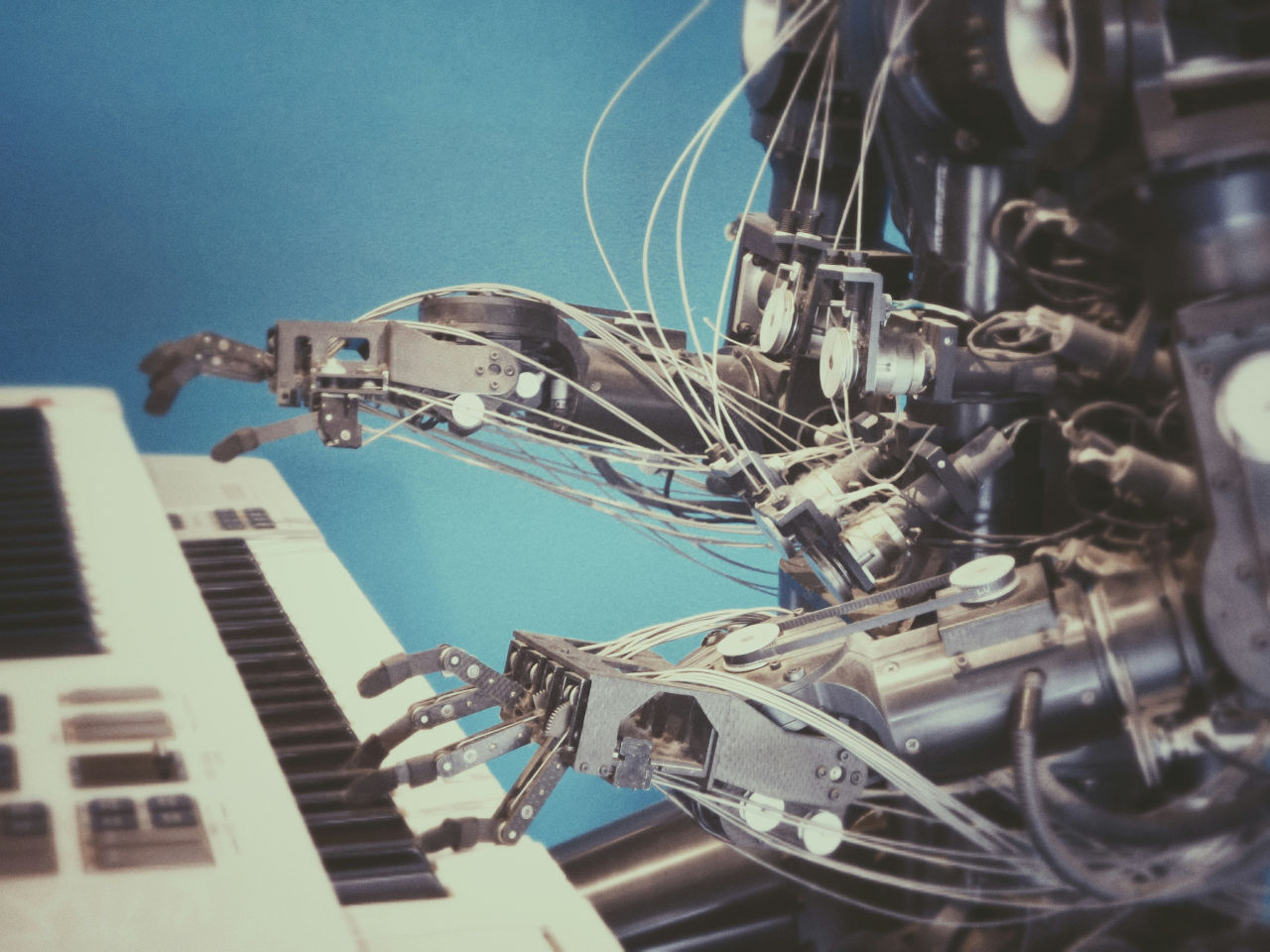The ability to adapt to change is essential to survival in the 21st century.
It’s true that if you don’t roll with the changes, you’ll become a victim of them, like so many others have already. But despite what may have happened in the past, the future will be even more ruthless to those that wish to ‘hold tight.’
We live in an age of exponential growth and development, with new technologies altering the lives of millions in the blink of an eye.
Dan Pink, in his book ‘A Whole New Mind,’ delves into the forces shaping this shift in our working lives, notably those of Asia, Automation, and Abundance.
Drivers of Change
Asia: The world is getting smaller, making it possible to hire highly skilled people with the click of a button. In fact, you no longer need to travel to do business globally, you can simply open your laptop or pick up your phone, and hire someone or win a contract from the other side of the world.
Automation: As we make greater technological leaps, we effectively kill off older forms of employment. Computers are now taking over our analytical jobs in the same manner that machines have been replacing the physical workforce for decades. Ray Kurzweil predicts that by 2045 we’ll reach the singularity, a time where technological progress will become so rapid that it will outstrip our ability to comprehend it.
Abundance: Mass production is making is easy and affordable to find almost any material item you need, which is satisfying needs that had previously been too costly or beyond reach. This abundance has forced those in the design of goods to place more focus on beauty and emotion in addition to function.
We’re moving into a time where basic needs are met and surpassed cheaply; where people from all over the world can get a good education; where collaboration is easy and people can work from anywhere.
The world is becoming a giant, interconnected, programmable brain. Businesses and individuals will become nodes among a greater network that functions in synchronicity. Steven Kotler, in his book Abundance, mentioned “the net is allowing us to turn ourselves into a giant, collective meta-intelligence.”
In order to succeed in this type of landscape, a new set of skills is required.
The New Creative Skills Required
“L-Directed Thinking remains indispensable. It’s just no longer sufficient. In the Conceptual Age, what we need instead is a whole new mind” – Dan Pink
L-Directed Thinking is the analytical, left brain, logical type of thought that has become the staple of the knowledge worker. The whole new mind that Pink is referring to, is one that takes this left-brain thought, and couples it with the long-overlooked right-brain.
Right-brain thinking is creative, it sees the big picture, it speaks to our emotive side, and it will be what drives us forward.
It is now more important for us to couple function with design, to create beautiful products that are emotionally engaging; to turn static information and facts into stories and narratives that speak to the human mind; we need to be able to cross boundaries, disciplines, and find links between disparate ideas; to forge relationships with others; to enjoy ourselves; and to find purpose and meaning in what we do.
“We live in a world of breathtaking material plenty. That has freed hundreds of millions of people from day-to-day struggles and liberated us to pursue more significant desires: purpose, transcendence, and spiritual fulfillment.” – Dan Pink
Not every profession has a need for all of these new skills, of course. But, every profession is at the mercy of change and disruption, so having the right abilities and mindset to adapt is crucial.
Hackademics: Future Proof Your Career
From growth hacking to life hacks, music hacks and even consciousness hacks, people are finding new ways to disrupt old methodologies.
Hackers learn through trial and error, constantly attacking new problems using their creative thinking ability and cross-disciplinary skill-set. They seek to make their own way rather than follow the more common path, and thrive at thinking outside the box.
A hackademic knows the importance of the R-Directed Thinking that Dan Pink stresses, and uses it to become the bearer of change as opposed to the victim.
There are three necessary factors to future proof your career, when taken together they give rise to the hackademic:
1. Intrinsic Motivation
Money isn’t a bad motivator, but today it falls short of being sufficient. People don’t do their best work when their only motivation comes from external drives, we need to start looking for those activities that are driven from within. Intrinsic motivation, according to Pinks book ‘Drive,’ comes from autonomy, mastery, and purpose — we need to be in control of ourselves, constantly improving, and working towards something bigger than ourselves.
2. Holistic Learning
Growth should never stop, to remain ahead of the pack you need to be on the forefront of new knowledge and have the ability to decipher new concepts. Memorization of simple facts or reading through a book is helpful, but it’s only the beginning. One of the most effective ways to learn is to launch yourself into difficult problems and see what you can do. Conceptual understanding comes from finding the relationships and connections between disparate pieces of knowledge, from merging disciplines, and seeing things from different perspectives.
3. Mindfulness and Flow
When it comes time to work, there is no greater form of productivity than the state of flow. Mihaly Csikszentmihalyi has found that flow is perhaps the most enjoyable experience there is, and occurs when people are so totally engaged in an experience as to lose themselves in it. One necessity to flow is focus, in Mihaly’s words, “Involvement is greatly facilitated by the ability to concentrate. To be distracted against one’s will is the surest sign that one is not in control.” Using mindfulness we can become more aware of our thoughts and improve our attention, limiting the self-inflicted distractions that interrupt flow.
By focusing on reaching higher levels of thought, greater forms of motivation, and deeper forms of involvement, we give ourselves the foresight and skills to thrive in this new technological world.
By engaging in “hackademics” you can future proof your career from change, and instead become one of the proponents bringing it in.





Just some interesting points on this article. I have done the multiple careers, as told this would happen way back in the 1980’s, but few of my friends and associates of my age have had multiple careers. Part luck and part bad luck I guess, I have been repeatedly downsized as a result of choosing to work for a smaller company that merged with a larger one and then my position was deemed redundant, almost equally I have worked for small companies that have gone broke.
What this has done for me is damaged my resume to the point where I find it hard for someone in the position to hire me as an employee to take me seriously. “General feedback is that” You don’t seem to have any direction…or wow, you have worked at a lot of companies”, and that causes them to question stability and loyalty. At some level I believe that I have simply moved along the this curve a few years earlier than most, and perhaps if I were a millennial, rather than a very early Gen-Xer (almost a boomer) the expectation may be different.
As for working on a job that doesn’t yet exist. Have been doing that for a while, but not as an employee, and even as a freelancer, I find that it is modestly difficult to be working as a knowledge worker as a late career change, and virtually impossible to be taken on as an employee even with solid skills and marks in tech courses. I am just simply seen as being too old to be any good at Social Media and Brand Reputation Management or the associated Analytics or any other tech skill even though I was using the internet before it really existed, or at least before commercial browsers made it easy to navigate. Age Bias is a bitch to get over, and if the changes are going to come as fast as predicted then you are going to be perceived as being too old for a new career by the time you hit 35.